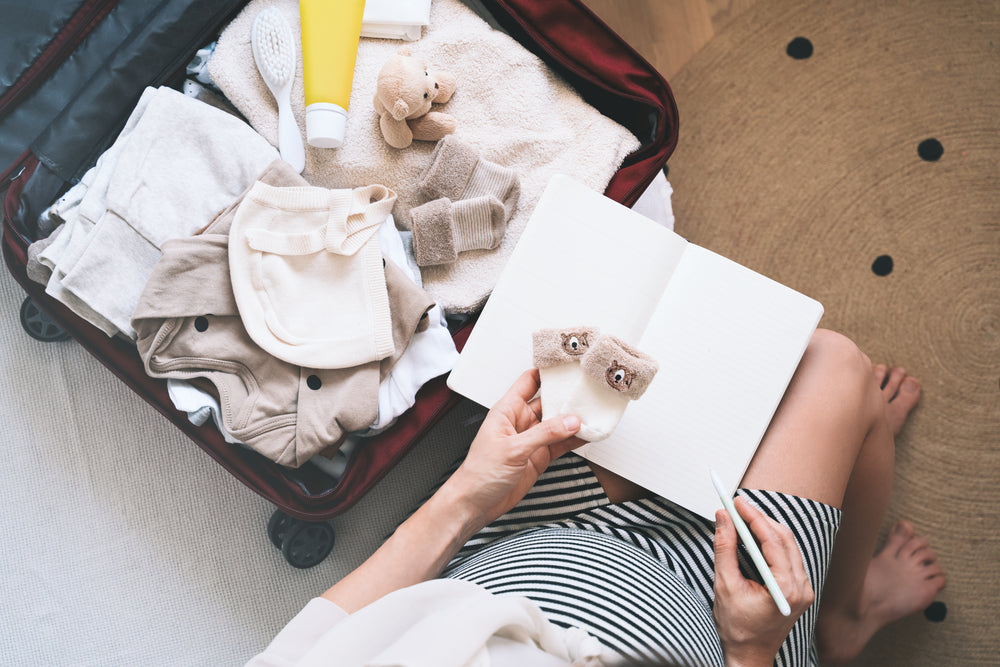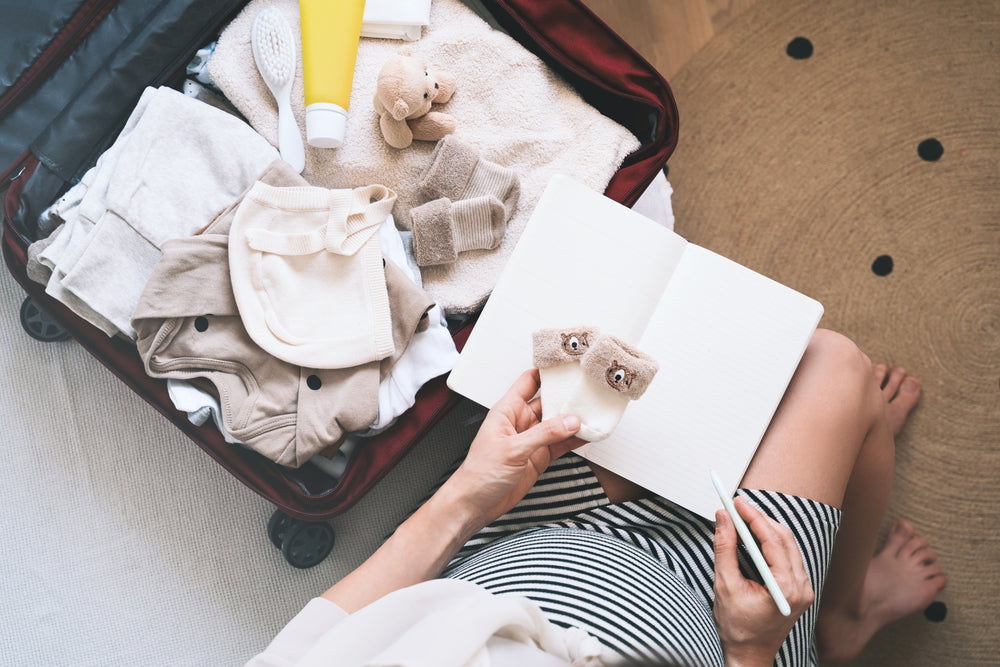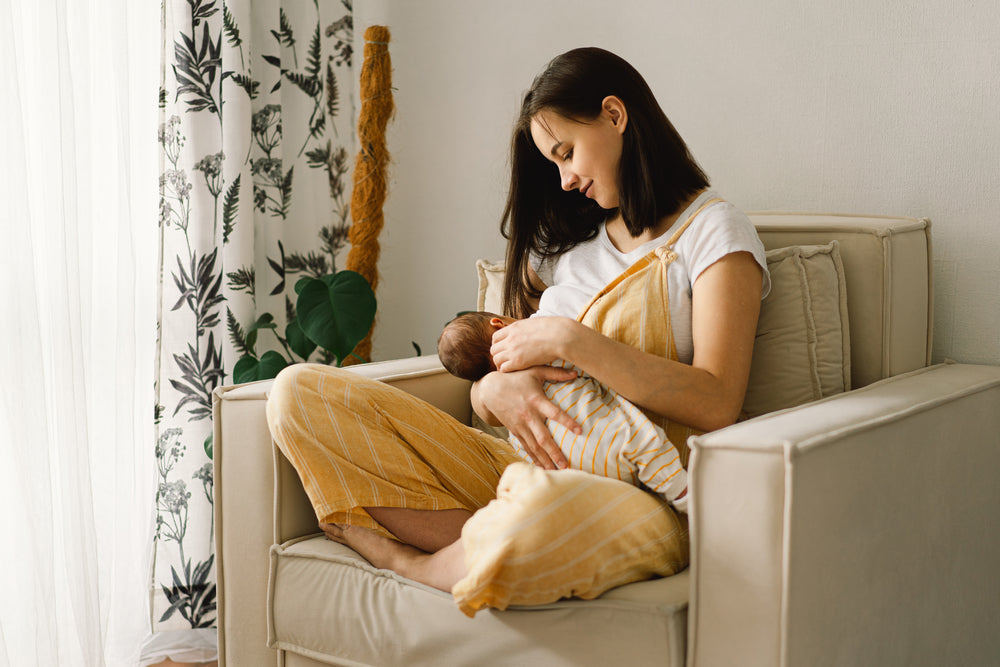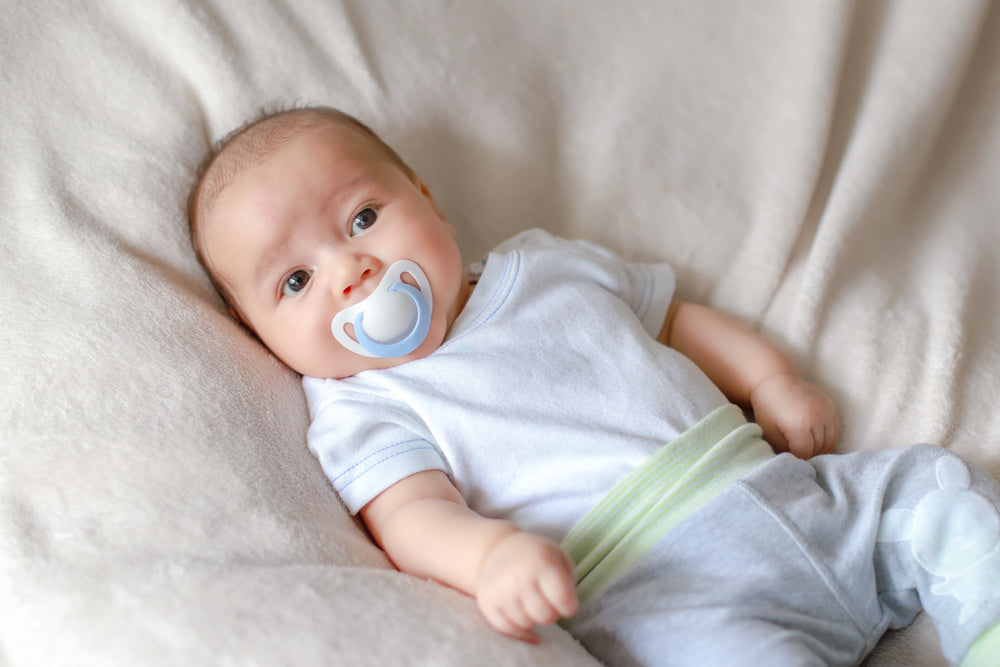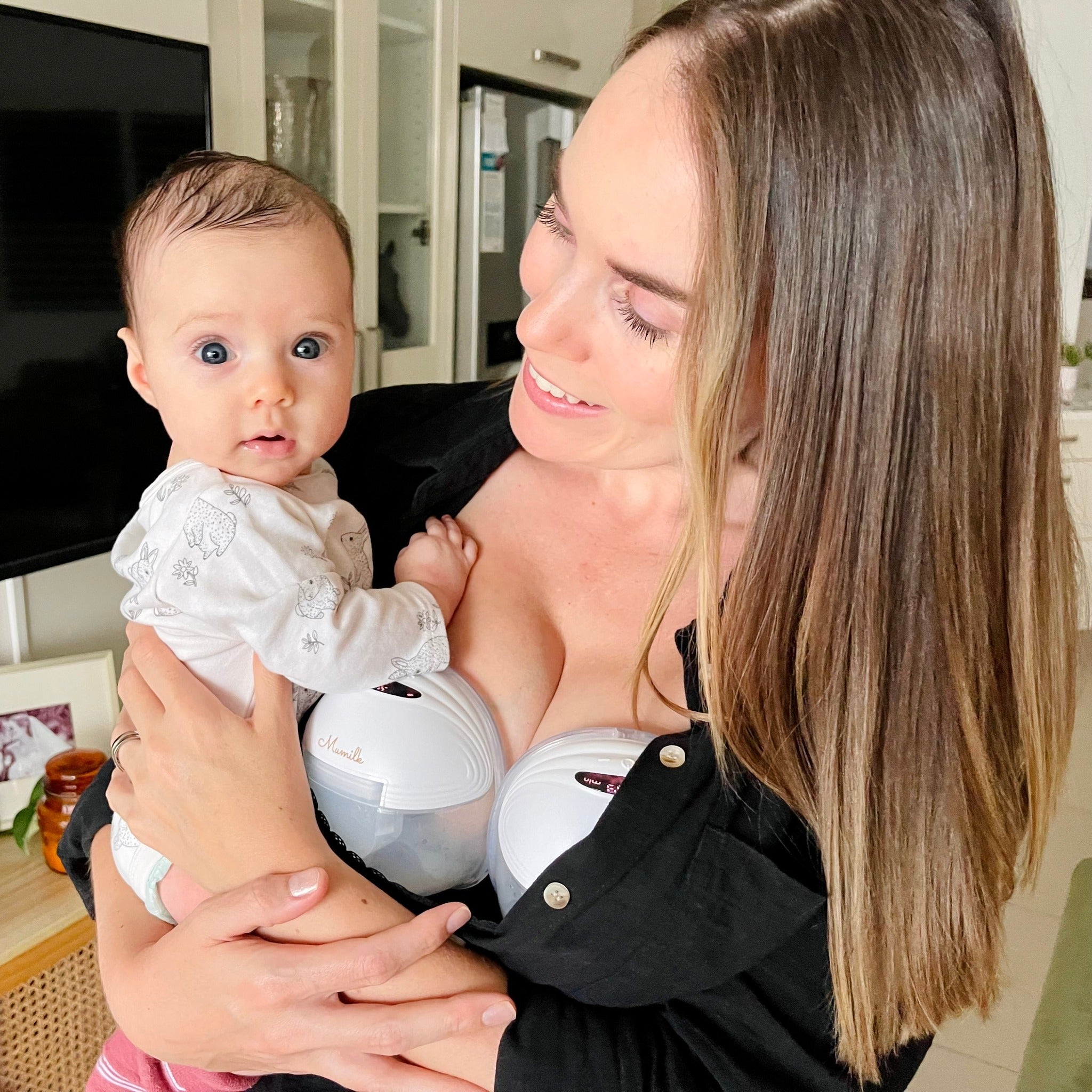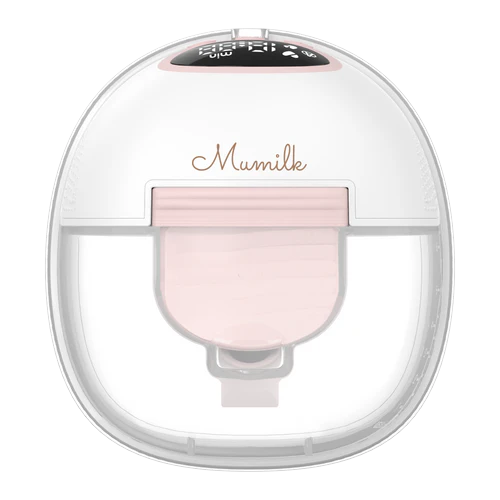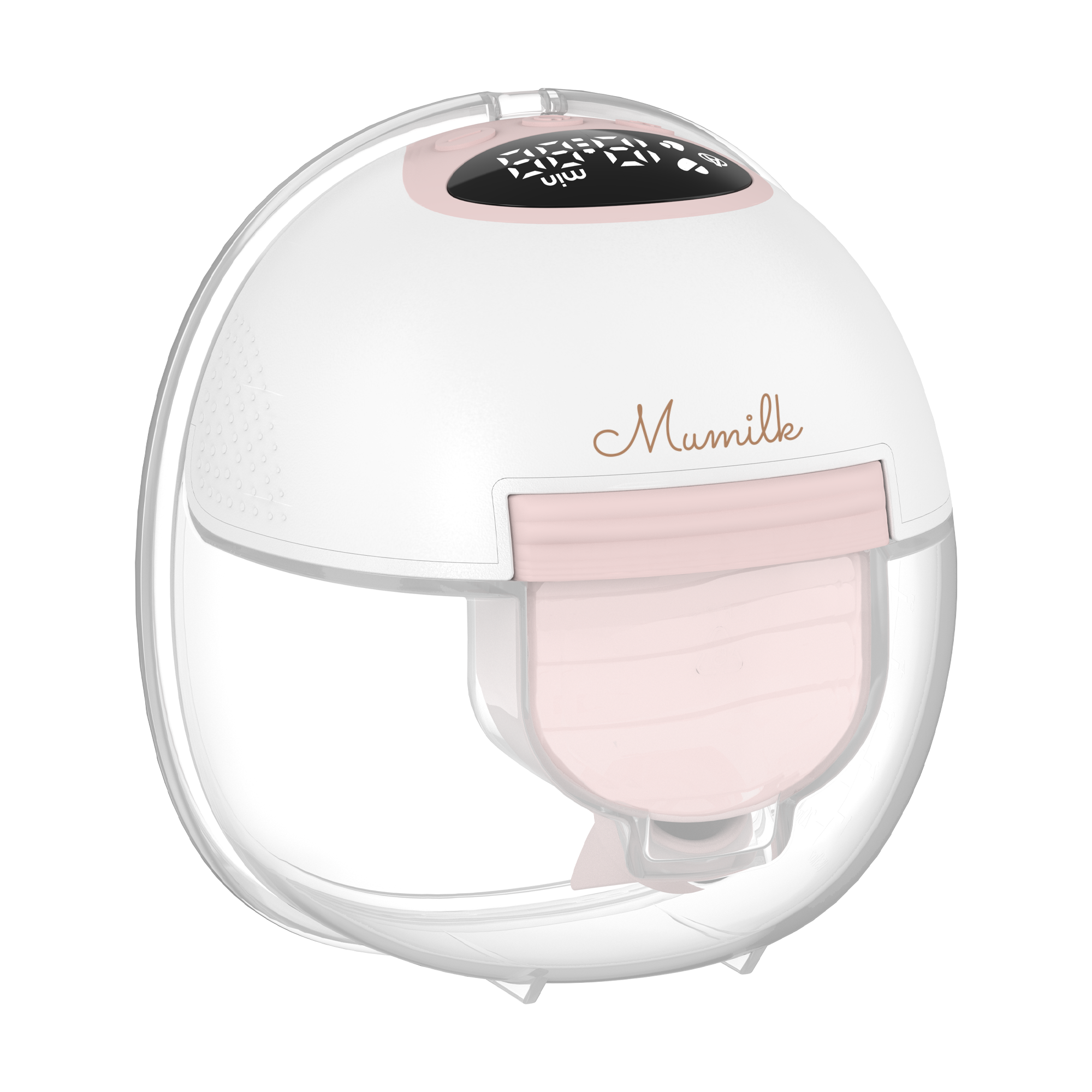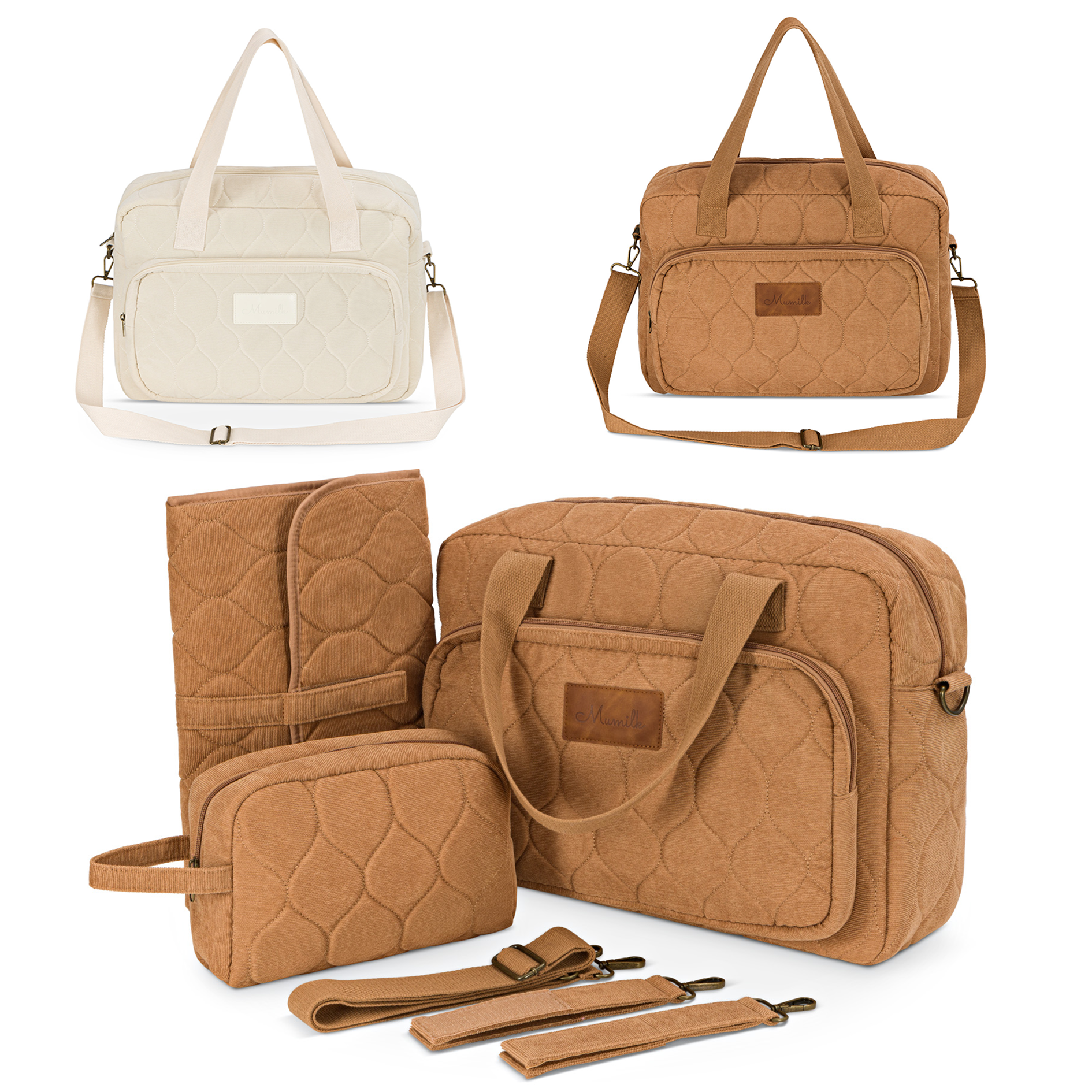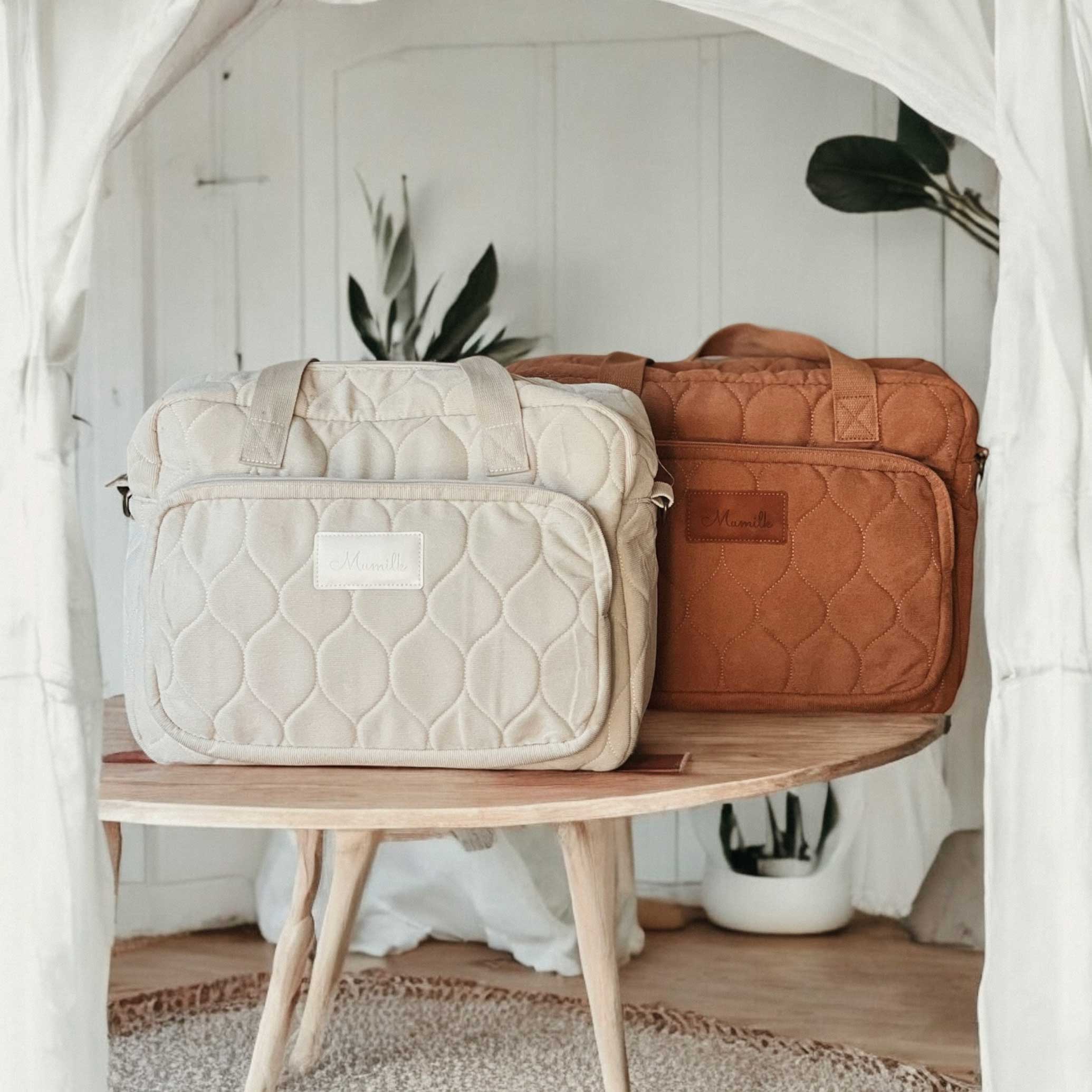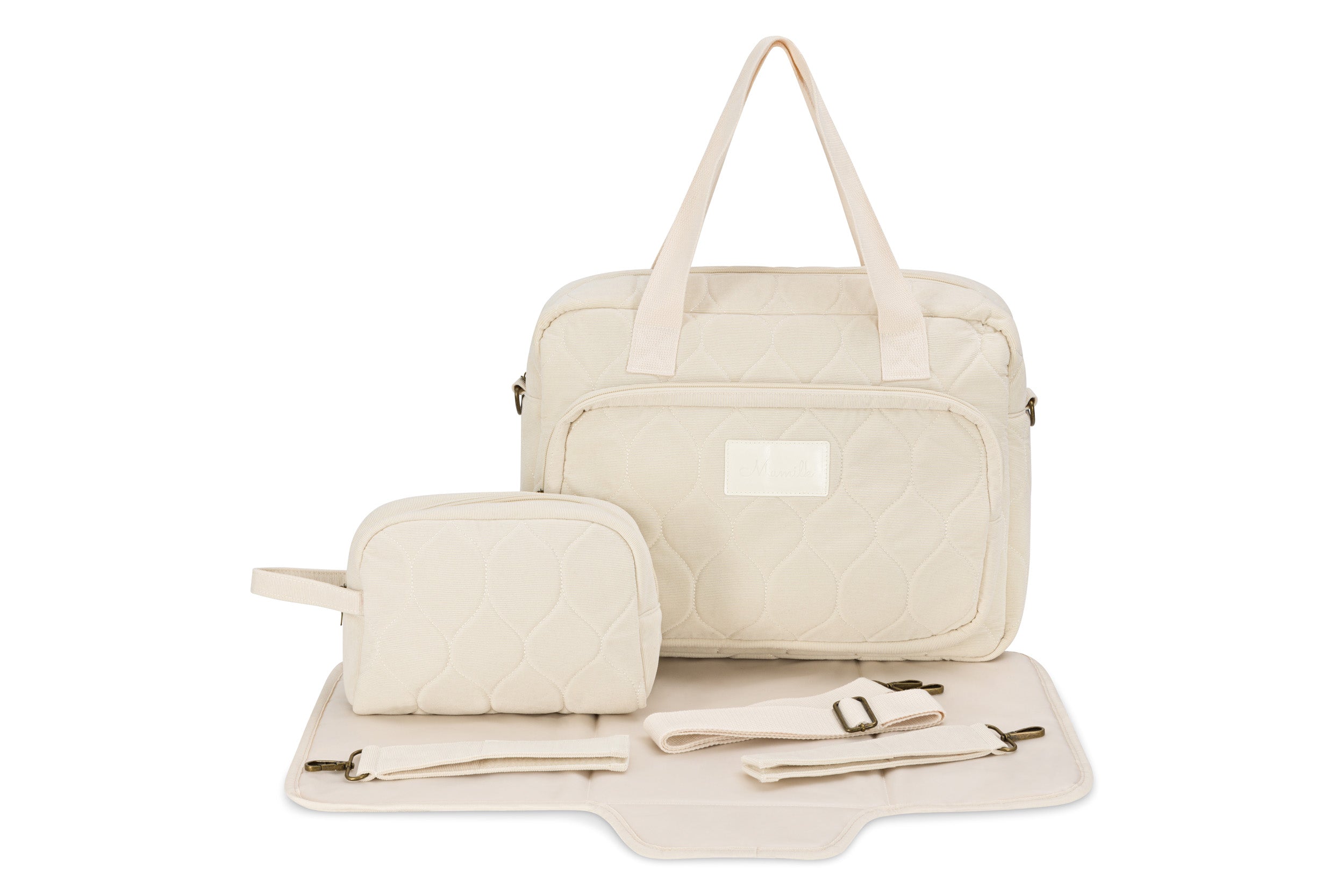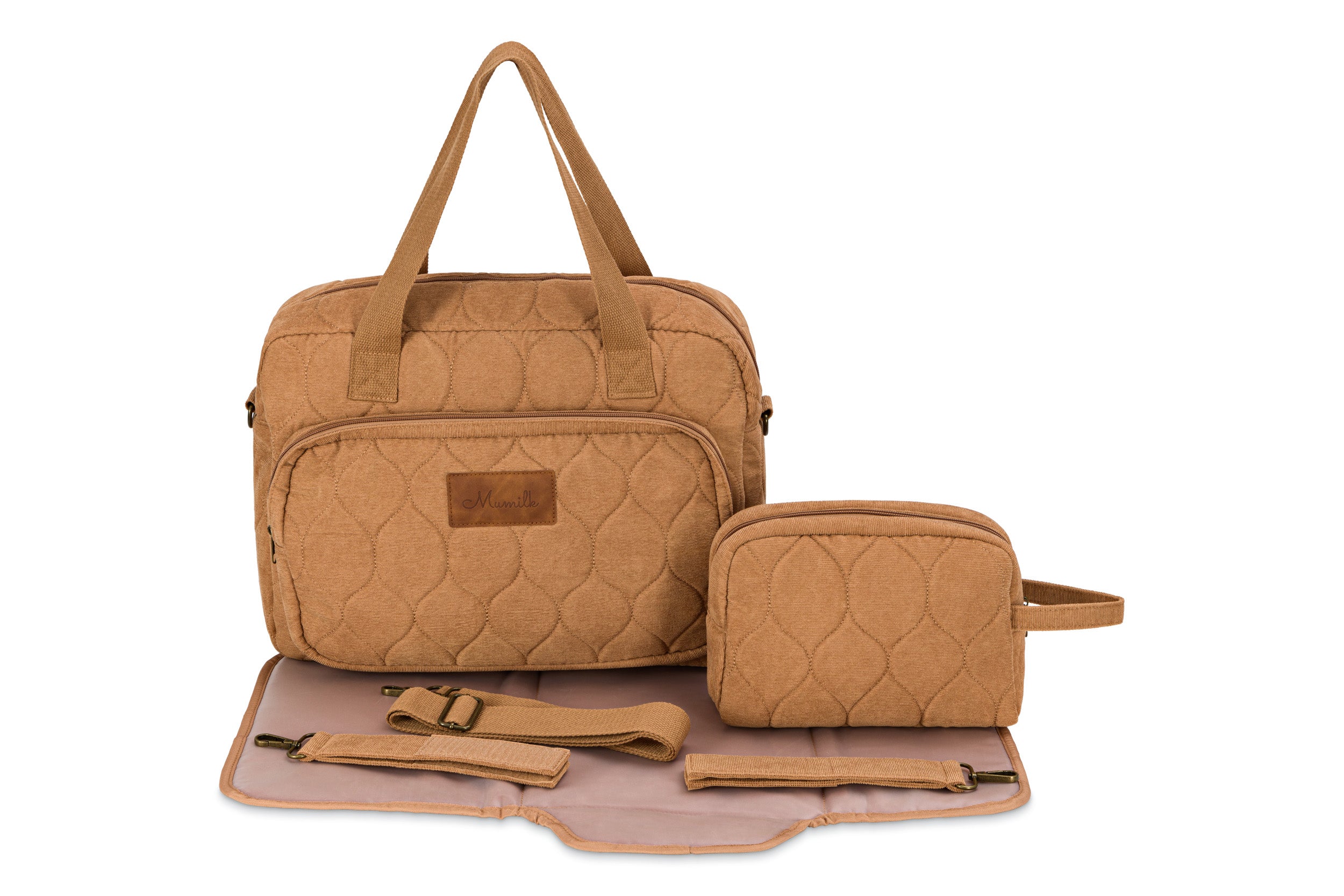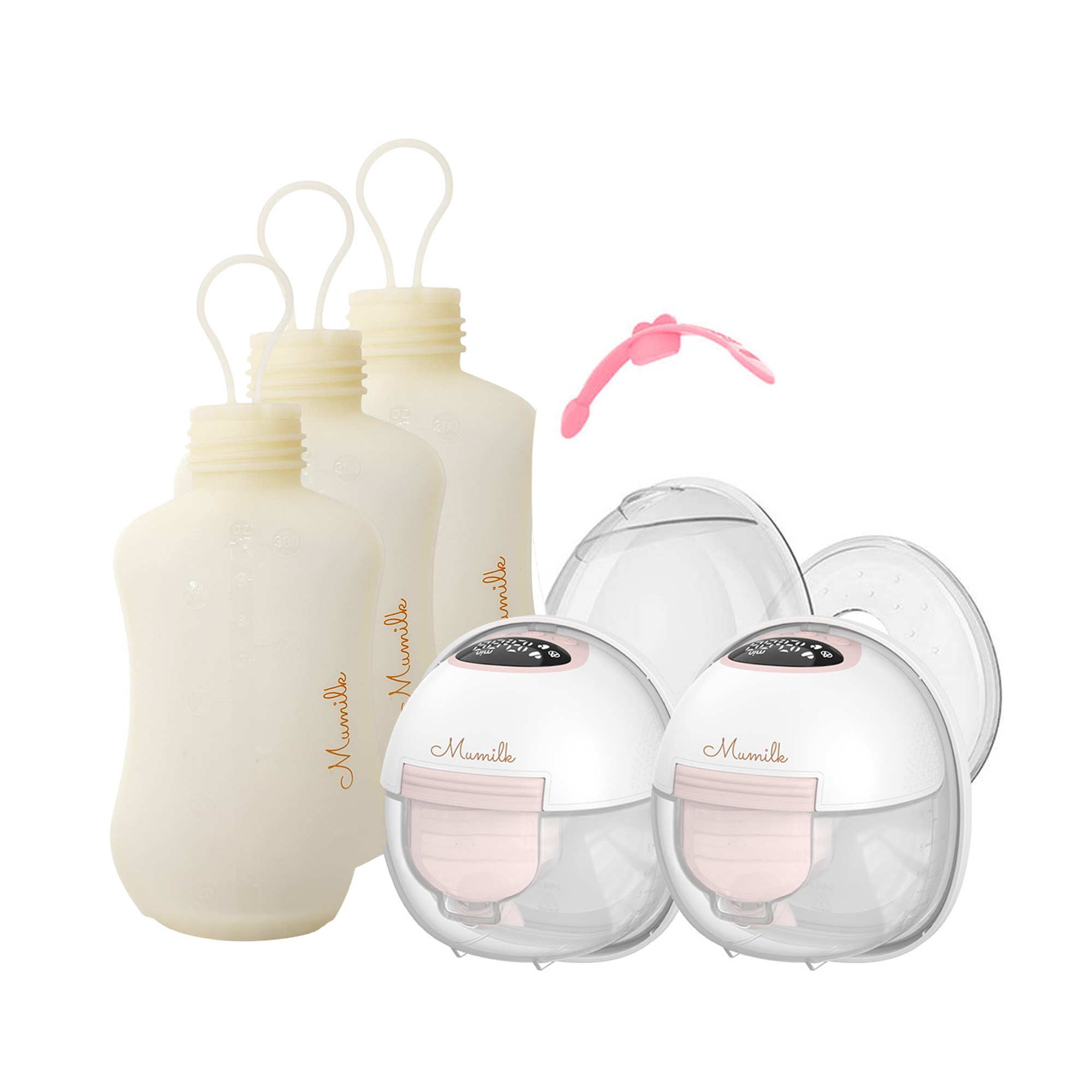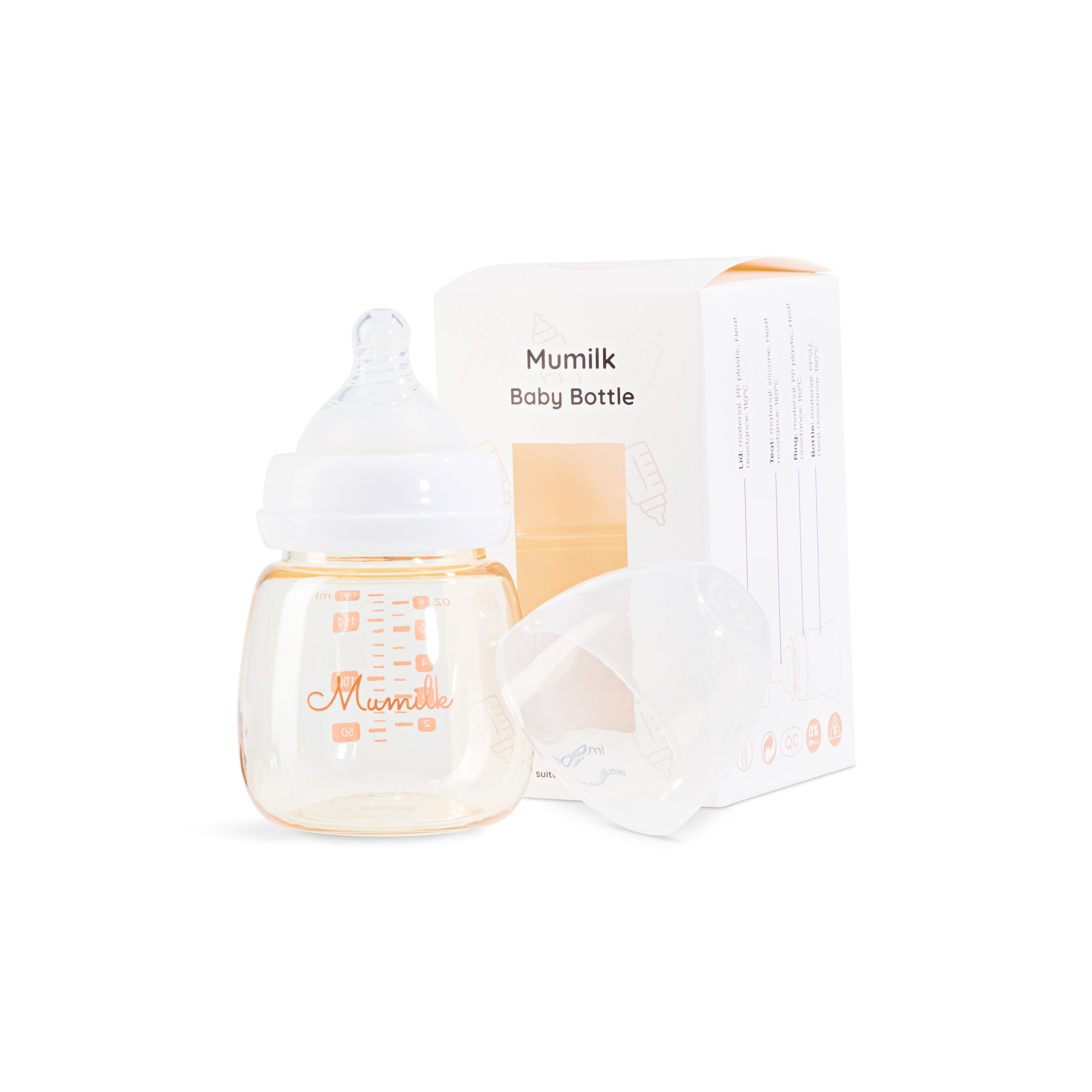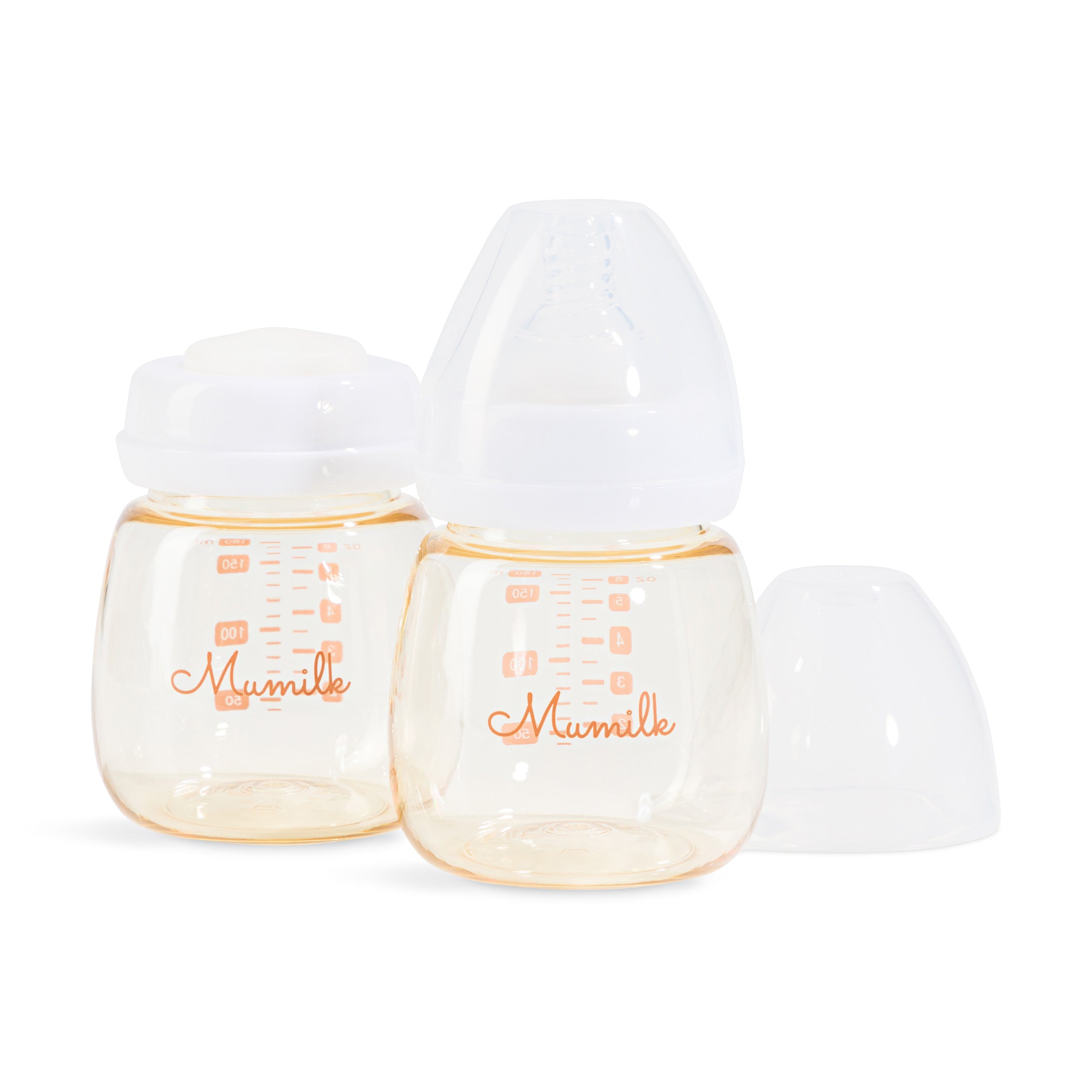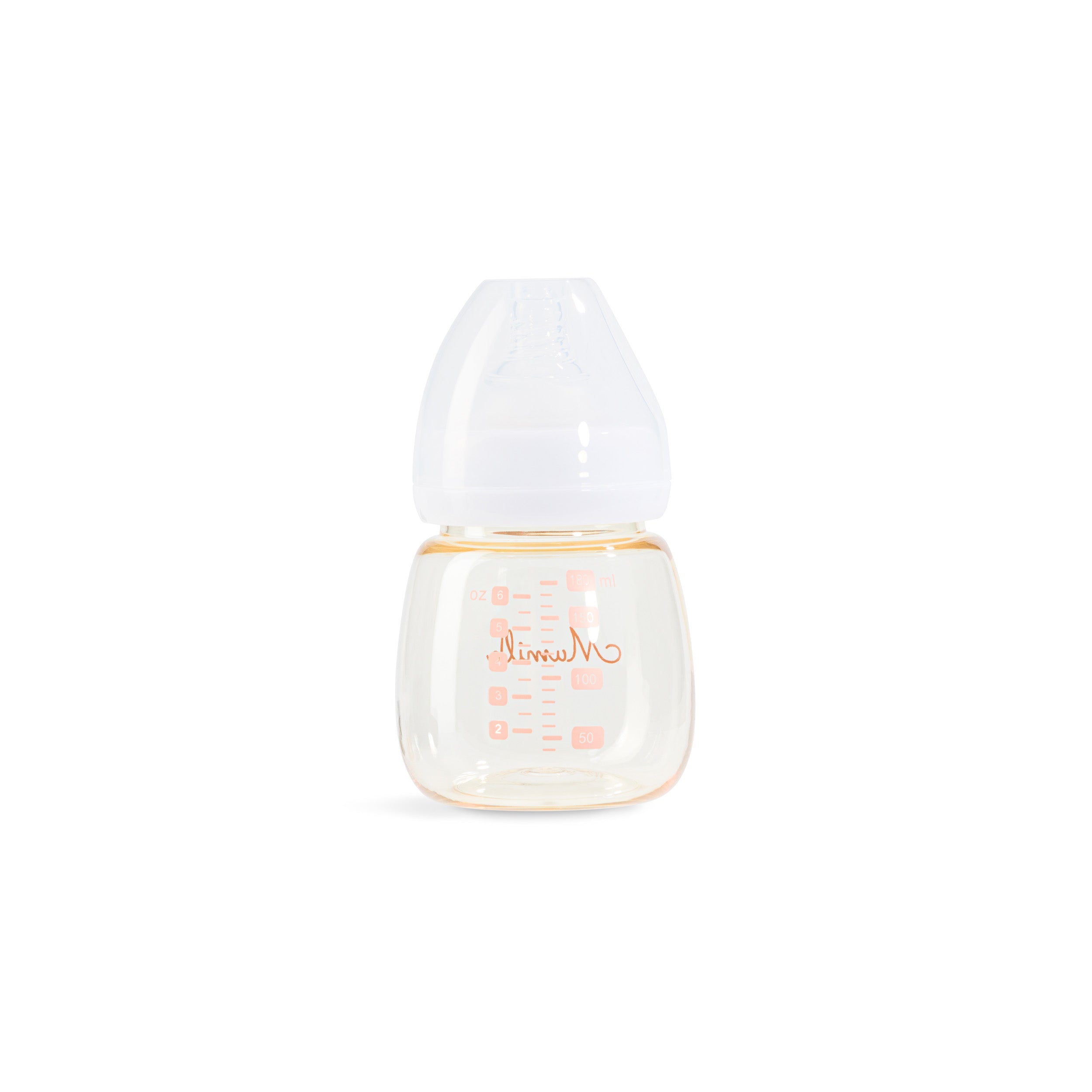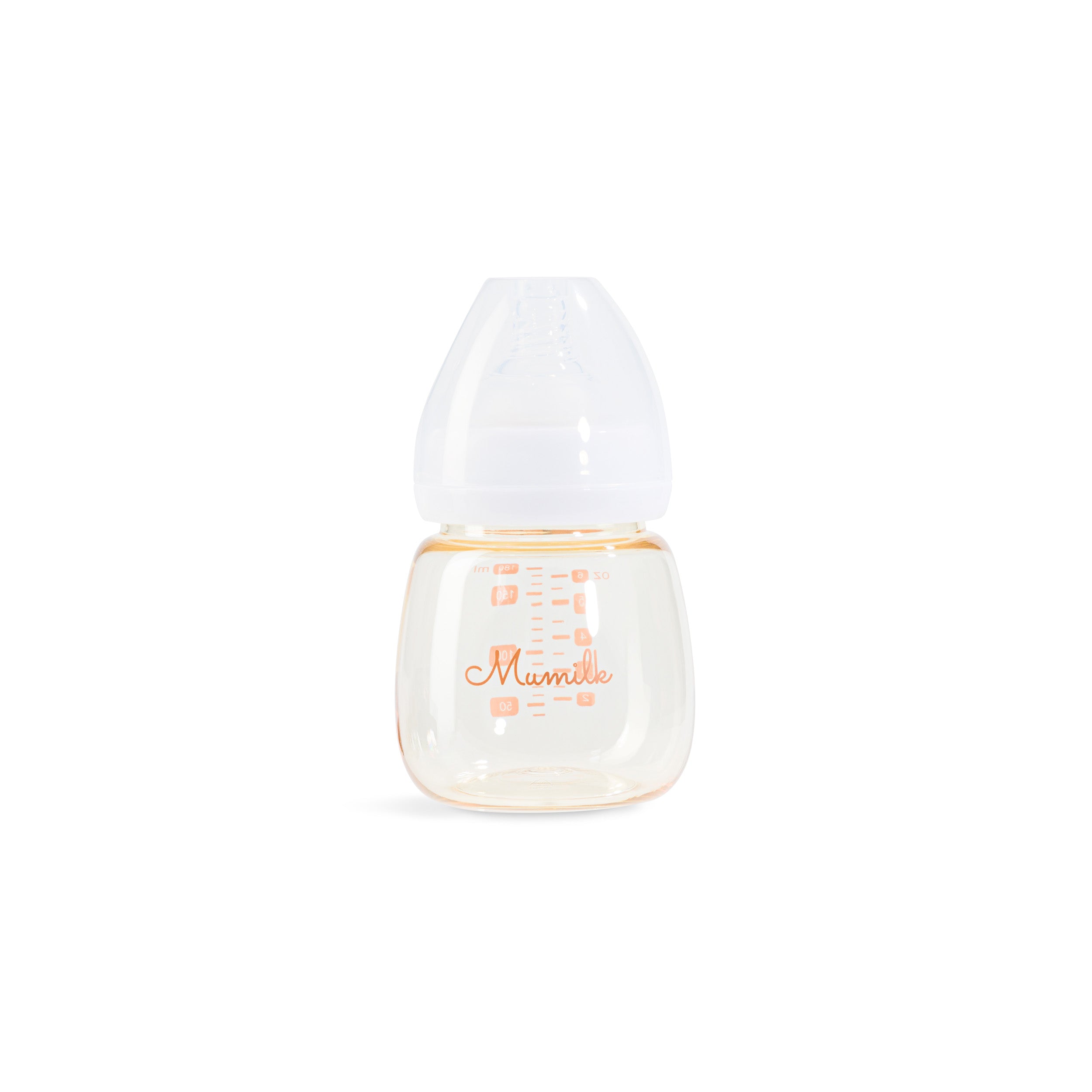Giving birth can bring a growing to-do list that can feel overwhelming. Between doctor appointments and last-minute preparations for the baby’s arrival, packing your maternity hospital bag may feel like something you can put off until closer to your due date. And while it’s tempting to do so, preparing your bag ahead of time will give you one less thing to worry about when the moment comes.
In this hospital bag checklist, we’ll walk you through everything you need for yourself, your baby, and even some extras for your partner. Let’s make sure you’re all set for this big day!
When Should You Pack Your Maternity Hospital Bag?
Ideally, you should have your hospital bag ready by 36 weeks, or even earlier in case your little one comes a little sooner than expected. Organising individual bags for the mum, baby, and partner can keep everything accessible, so you can focus on labour and delivery without rummaging through a single, over-packed bag.
Hospital Bag for Mum
If you already have an idea of what type of delivery you’ll have, it can help guide what you pack for your hospital stay. While the essentials for vaginal and C-section deliveries overlap, there are a few specific items for each scenario to keep you more comfortable and prepared. Here’s a breakdown of what to pack in a hospital bag for mum.
For Vaginal Delivery
During a vaginal delivery, your focus will be on staying comfortable, managing contractions, and recovering after birth. Here are what you should cross off your postpartum and labour bag checklist:
✅ Essential documents: Medical records, photo ID, health card, or insurance card
✅ Birth plan (if you have one)
✅ 2-3 sets of loose, lightweight clothes
✅ 2-3 sets of non-restrictive bras without underwires
✅ At least 3 sets of stretchy underwear
✅ At least 1 pair of non-slip socks and slippers
✅ 2 packets of super-absorbent period or maternity pads
✅ Toiletries: Toothbrush, toothpaste, soap, shampoo, deodorant
✅ Towels
✅ Charger (with an extra-long charging cord, if you have one)
✅ Glasses or contacts
✅ Headbands or hair ties
✅ Going-home outfit
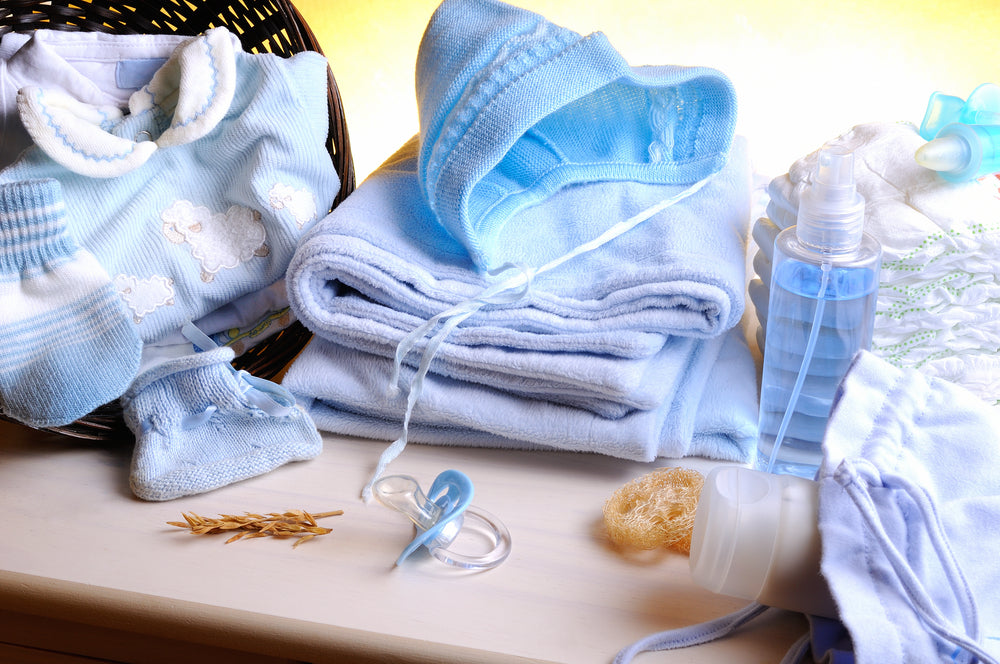
For C-Section Delivery
With a C-section, your hospital stay will likely be longer, and you'll need to plan for additional comfort and incision care. You may also not be able to immediately shower after the surgery, so having items on hand that help you freshen up and feel comfortable is key.
✅ Essential documents: Medical records, photo ID, health card, or insurance card
✅ Birth plan (if you have one)
✅ At least 3 sets of high-waisted underpants with elastic waistbands
✅ At least 3 sets of loose-fitting clothes
✅ Glasses*
✅ Headbands or hair ties
✅ Face and body wipes
✅ Charger (with an extra-long charging cord, if you have one)
✅ 2 packets of super-absorbent period or maternity pads
✅ Painkillers
✅ At least 3 sets of non-restrictive bras without underwires
✅ At least 3 pairs of non-slip socks
✅ Toiletries: Toothbrush, toothpaste, soap, shampoo, deodorant
✅ Going-home outfit
✅ Dry shampoo
✅ Towels
✅ At least 1 pair of non-slip socks and slippers
*If you’re wearing contacts, you may be asked to remove them before the procedure.
Hospital Bag for the Baby
Babies require a few essentials to ensure they are comfortable and well-cared for. Here’s the hospital bag checklist for your baby:
✅ Onesies (in multiple sizes)
✅ Socks or booties
✅ Soft, lightweight swaddle blankets
✅ Gentle baby wipes
✅ Dummy
✅ Soft hats
✅ Mittens
✅ Nappies
✅ Infant car seat
✅ Baby blanket
Hospital Bag for the Partner
While much of the focus is on mum and baby, it’s important that partners also pack a hospital bag to stay comfortable and be ready to offer support.
✅ Change of clothes
✅ Medications for you and the mum
✅ Extra pillows
✅ Copy of your partner’s health card and insurance records
✅ Singlets
✅ Basic toiletries
✅ Face masks
✅ Cash and card
✅ Snacks or food
Optional Things to Pack
Once you’ve crossed all the essentials in your maternity bag checklist, you may want to consider these nice-to-haves that can make your stay more comfortable for you, your baby, and your partner.
✅ Snacks
✅ Comfortable pillow
✅ Hairdryer
✅ Cooling water spray
✅ Baby bottles and formula, if you plan to formula-feed right away
✅ Light reading or entertainment
✅ Earbuds
✅ Essential oils
✅ Comforter
*Using a breast pump allows you to store milk if direct breastfeeding is not possible. In some research, it can also help induce labour for women past their due dates. [1] Keep in mind that it should be done with caution and under medical supervision. Talk to your doctor about using a breast pump before delivery.
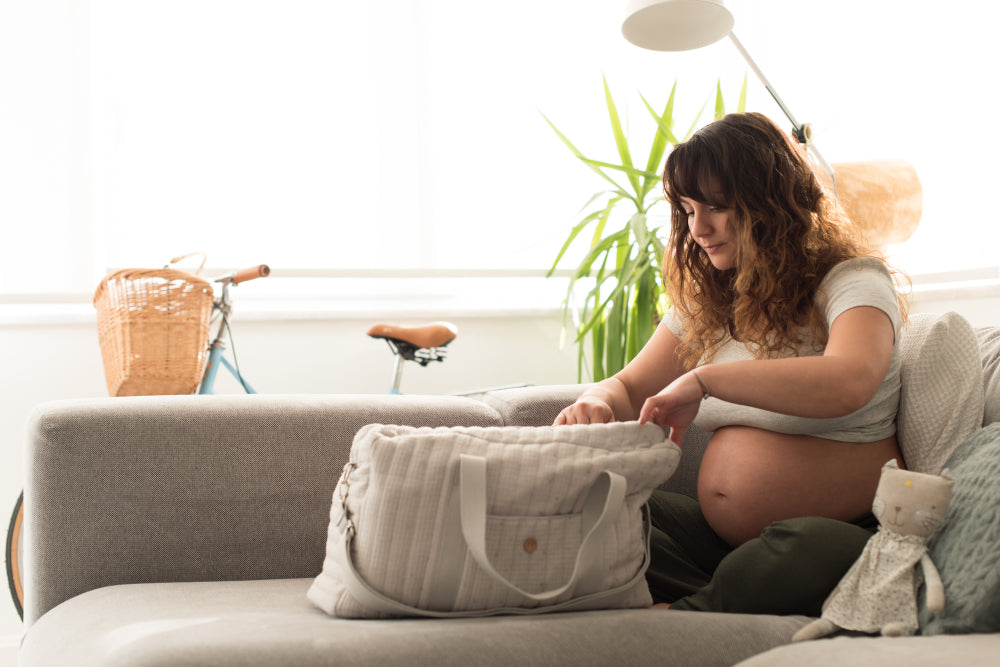
What Should You Not Pack In Your Hospital Bag?
While it’s important to be prepared for your hospital stay, packing too much or bringing unnecessary items can lead to more clutter and stress. Here are some things you should leave out of your hospital bag:
Valuables
The hospital is a busy place, and it’s best to keep valuable items like expensive jewellery and large amounts of cash safe at home.
Pre-Pregnancy Clothes
Your body will still be adjusting after giving birth, and it’s unlikely that your pre-pregnancy clothes will fit right away. Go for loose, comfortable maternity wear instead.
Work Materials and Bulky Electronics
Your recovery and bonding with your baby should be your main focus during this time. It’s best to leave your work laptop and other bulky electronics at home and enjoy the first precious moments you have with your little one.
Large Breastfeeding Supplies
Most hospitals provide basic supplies like nipple creams and nursing pads. If you prefer using your own, you don’t need to bring your entire breastfeeding setup—just the essentials, such as your breast pump.
Comfort and Practicality Are Key
When it comes to choosing what goes in your hospital bag, focus on things that will make your hospital stay smoother and more comfortable. Stick to the essentials, and don’t overpack. The goal is to be comfortable and ready to focus on welcoming your baby into the world, rather than stressing about what you might need.
And if you want to get ahead of your milk supply, having one or two portable electric breast pumps can be handy. It not only takes up a small space in your bag, but it also allows you to pump hands-free while moving around or resting.
So, pack up and pack smart. You’ve got this, and soon, you’ll be holding your little one in your arms, too.
FAQ
1. What to wear during birth?
Loose, comfortable clothing is key. Many mums prefer a hospital gown, but you can also bring your own button-down nightgown or a large shirt. If you choose to wear a bra, make sure it’s non-restrictive without underwires that can dig into your skin.
2. What to pack if you're having a C-section?
You’ll want to pack items that can accommodate a longer stay for about 2 to 4 days after a C-section. Bring more sets of loose clothes that don’t irritate the incision wound. It wouldn’t hurt to bring light entertainment as well to help pass the time during your recovery.
3. What do babies wear right after birth?
Hospitals generally keep newborns swaddled in a flannel blanket to keep them warm and cosy. However, you can also pack your own baby clothes if you prefer something more personal for those first moments of their life.
4. How many nappies should I take to the hospital?
Pack at least 10-12 nappies per day, as newborns tend to need frequent changes in the first few days. In most cases, you and your baby can leave the hospital after two or three days, so it’s best to prepare at least 30 nappies to cover your stay. Hospitals often provide a small supply, but having your own ensures you're prepared for any extra changes necessary.
5. What to take for an overnight stay in the hospital?
If you’re not expecting to stay at the hospital for a few more days, here’s what you should consider packing: Consider packing just the essentials, such as 2-3 sets of clothes, basic toiletries, and your phone and charger. Don’t forget to bring clothes for your baby, too.
6. What to eat the night before giving birth?
Research says that the energy and caloric demands of labouring mums-to-be are similar to those of professional marathon runners, so you may want to eat easy-to-digest foods that give you tons of energy. [2] Here are some great options to consider:
- Peanut butter and banana sandwich
- Oatmeal
- Sweet potatoes
- Prawn rice bowl
- Spaghetti and lean meat sauce
Related posts
What to Pack in a Hospital Bag (with Checklist)
In this hospital bag checklist, we’ll walk you through everything you need for yourself, your baby, and even some extras for your partner. Let’s make sure you’re all set for this big day!
8 Food and Drinks to Avoid When Breastfeeding
You may also like
The Ella - Portable Single Electric Breast Pump
The Twin Ella Breast Pump - Ultimate Mothers Bundle!

